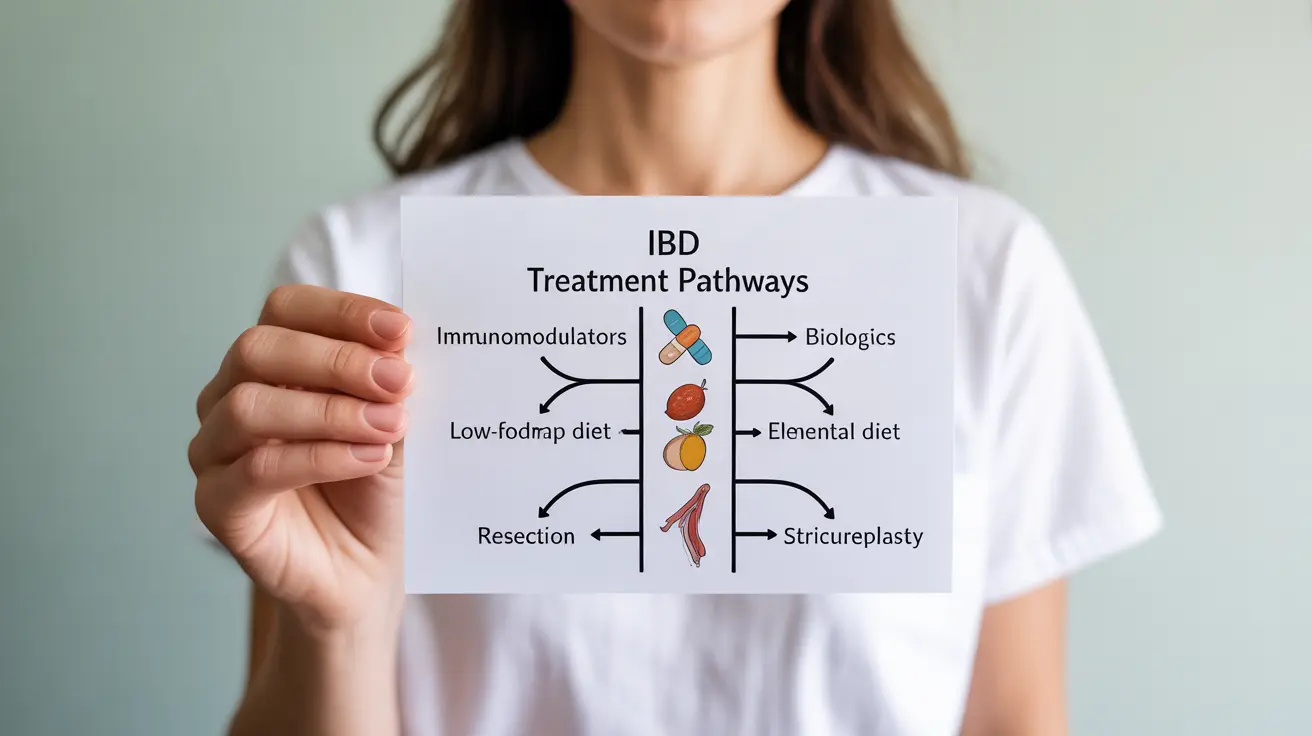Living with inflammatory bowel disease (IBD) raises many questions about long-term health outcomes and the possibility of a cure. While IBD currently has no definitive cure, modern medicine offers numerous effective treatments that can help patients achieve and maintain remission, significantly improving their quality of life.
Understanding the current state of IBD treatment and ongoing research is crucial for patients and their families. Let's explore the available options and promising developments in IBD management.
Current Treatment Approaches for IBD
Though IBD isn't currently curable, doctors have multiple treatment strategies to help patients manage their condition effectively:
Medication Options
Modern IBD treatment typically involves various medications that target different aspects of the inflammatory response:
- Aminosalicylates for mild to moderate inflammation
- Corticosteroids for acute flare-ups
- Immunomodulators to regulate immune system response
- Biologics targeting specific inflammatory proteins
- JAK inhibitors for moderate to severe cases
Lifestyle and Dietary Management
Alongside medical treatments, lifestyle modifications play a crucial role in managing IBD symptoms:
- Identifying and avoiding trigger foods
- Maintaining proper nutrition
- Managing stress levels
- Regular exercise when appropriate
- Adequate rest and sleep
The Role of Surgery in IBD Treatment
While surgery isn't a cure for IBD, it can be an important treatment option in certain situations:
For ulcerative colitis, removal of the colon (colectomy) can eliminate the primary site of disease activity, though patients may still experience other inflammatory symptoms. In Crohn's disease, surgery may be necessary to address complications like strictures or fistulas, but the condition can recur in other areas of the digestive tract.
Emerging Treatments and Research
Scientists and medical researchers continue to make progress in understanding and treating IBD:
Promising New Therapies
- Stem cell treatments
- Microbiome-based interventions
- Novel biological therapies
- Personalized medicine approaches
Clinical Trial Developments
Numerous clinical trials are investigating potential new treatments, including:
- Advanced targeted therapies
- Cell-based treatments
- Novel drug delivery systems
- Genetic therapy approaches
Frequently Asked Questions
Is inflammatory bowel disease (IBD) curable or only manageable?
Currently, IBD is not curable but is manageable through various treatment options. While patients can achieve long-term remission with proper treatment, the underlying condition remains present.
What are the current treatment options available to help control Crohn's disease and ulcerative colitis?
Treatment options include medications (such as aminosalicylates, corticosteroids, immunomodulators, biologics, and JAK inhibitors), dietary modifications, lifestyle changes, and surgery when necessary. Treatment plans are typically personalized to each patient's specific needs.
How do new medications like biologics and JAK inhibitors improve IBD symptoms and remission rates?
Biologics and JAK inhibitors work by targeting specific components of the inflammatory process, often leading to better symptom control and higher remission rates compared to traditional treatments. These medications can help heal the intestinal lining and prevent disease progression.
Can surgery cure IBD, or does it only manage symptoms like inflammation?
Surgery cannot cure IBD, but it can help manage severe complications and may provide long-term symptom relief. While removal of the colon can eliminate the primary disease site in ulcerative colitis, Crohn's disease can still affect other parts of the digestive tract even after surgery.
What promising new therapies or research advances are underway that could lead to a cure for IBD in the future?
Current research includes stem cell therapy, microbiome manipulation, genetic treatments, and personalized medicine approaches. While these developments show promise, more research is needed before any potential cure can be established. Scientists continue to investigate new therapeutic targets and treatment strategies.




